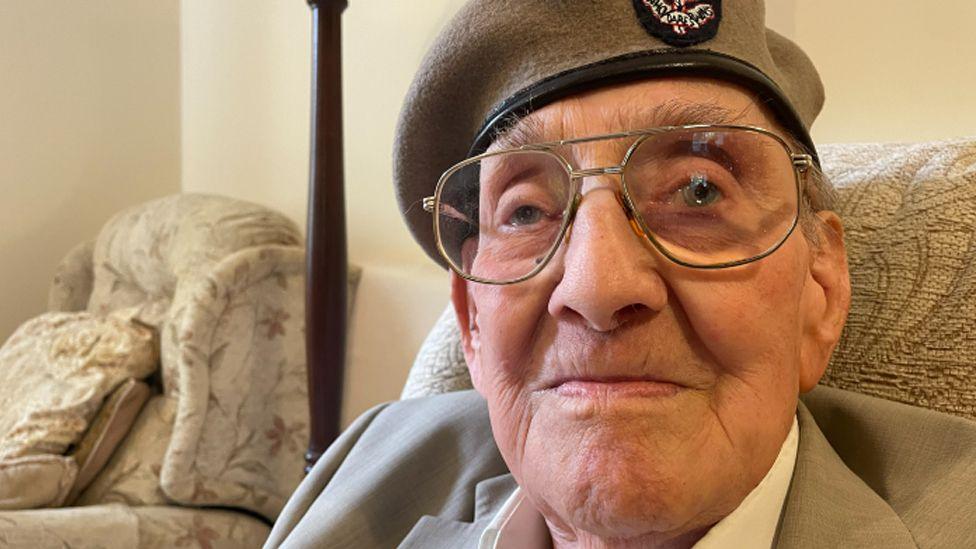D-Day veteran recalls landing 'in flying coffin'
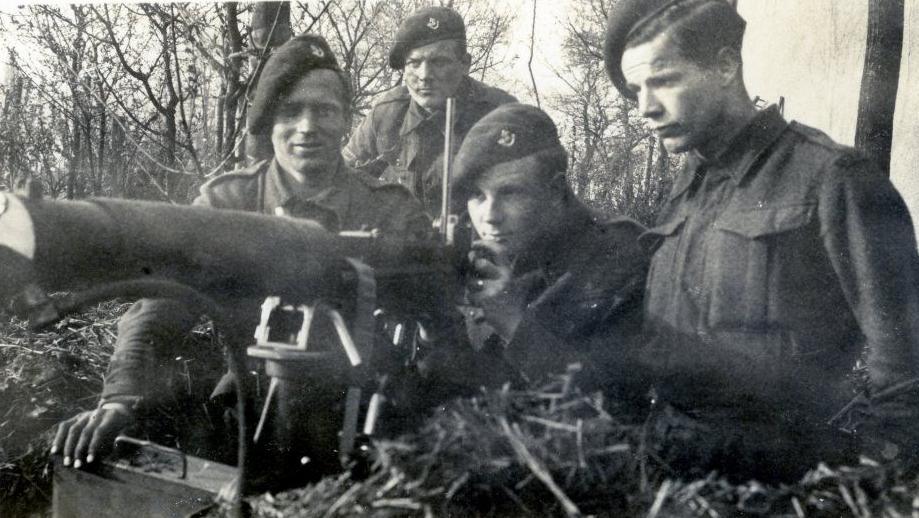
John Arthur, pictured centre, operates a Vickers machine gun in World War Two
- Published
As the UK commemorates the 80th anniversary of D-Day, which led to the liberation of Nazi-occupied north-west Europe in World War Two, John Arthur tells BBC News of his frontline role.
“We called them flying coffins,” says John Arthur.
“They were made basically with wood - thin because they were only made for a one-way trip.”
Mr Arthur is talking about the Horsa gliders. He was just 20 when he boarded one as part of the infantry heading to France on D-Day. They were towed behind bombers, then let go to land.
“The pilots used to, if it was possible, aim the glider between two trees or bushes so it would rip the wings off,” he recalls.
“They could only knock the speed down to 90mph, so every glider was doing 90 when it hit the ground.”
I cannot hide my astonishment, as I ask him what it was like.
"Ruddy awful!” he laughs.
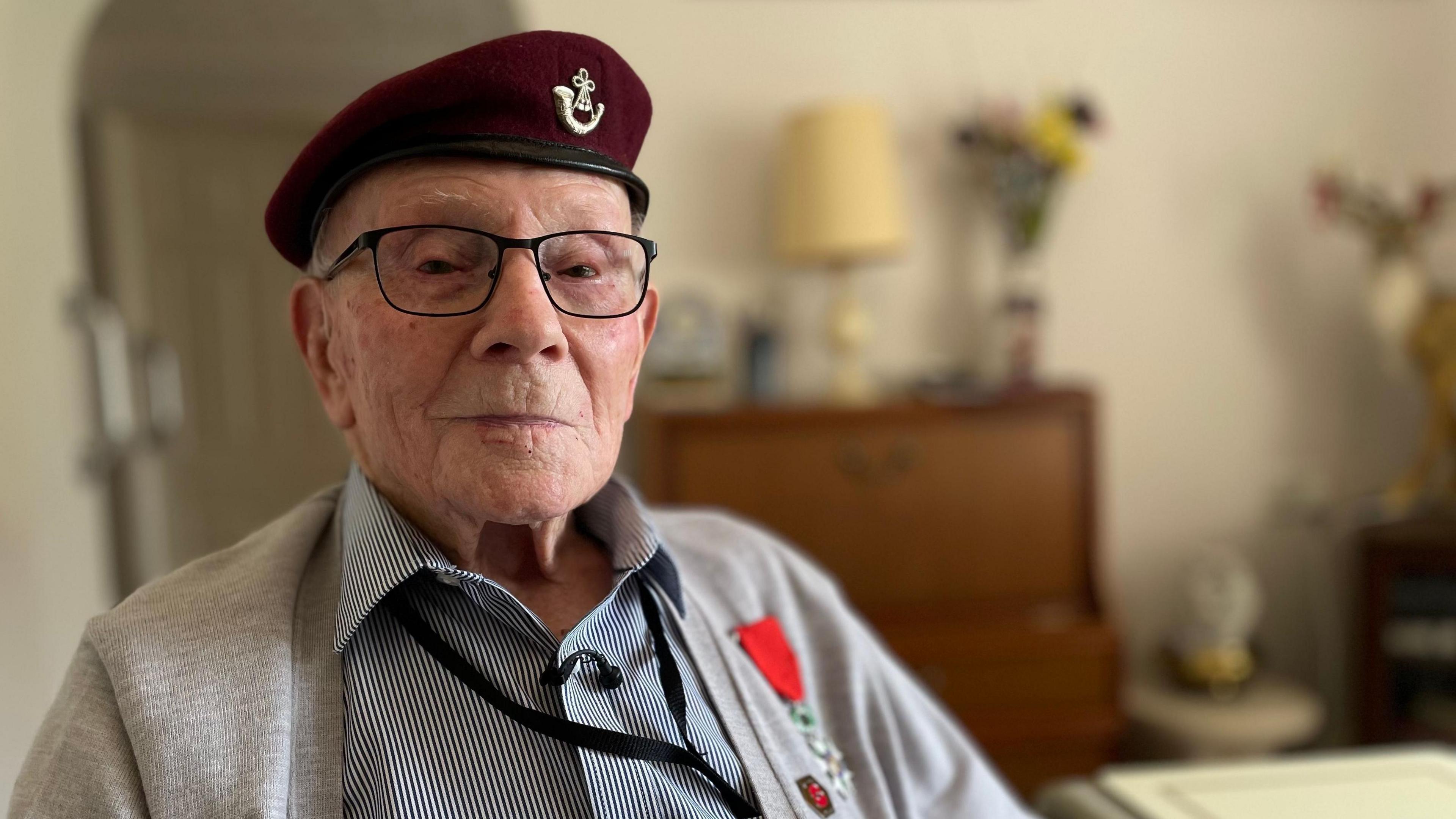
Mr Arthur, 100, was part of the 6th Airborne Division on D-Day
Troops from the UK, the US, Canada and France attacked German forces on the coast of northern France on 6 June 1944.
Operation Overlord was the largest military naval, air and land operation ever attempted, involving the simultaneous landing of tens of thousands of troops on five separate beaches in Normandy.
At his home in Lincolnshire, Mr Arthur is now in a wheelchair, with a whiteboard on the dining room table reminding him to drink his water.
His son, daughter-in-law and grandson are with us, making sure he is not too tired; prompting him when his memory fails.
No one can ignore Mr Arthur's age – he will be 101 later this year. But his descriptions are vibrant, complete with actions and sound effects.
"Were you scared?" I ask.
He replies: "You all had thoughts, but I don't think scared came into it. You were more thinking about what will happen if you are lucky and landed safe.
"You soon found out, because as soon as you opened the glider then the Germans were bang, bang, bang."
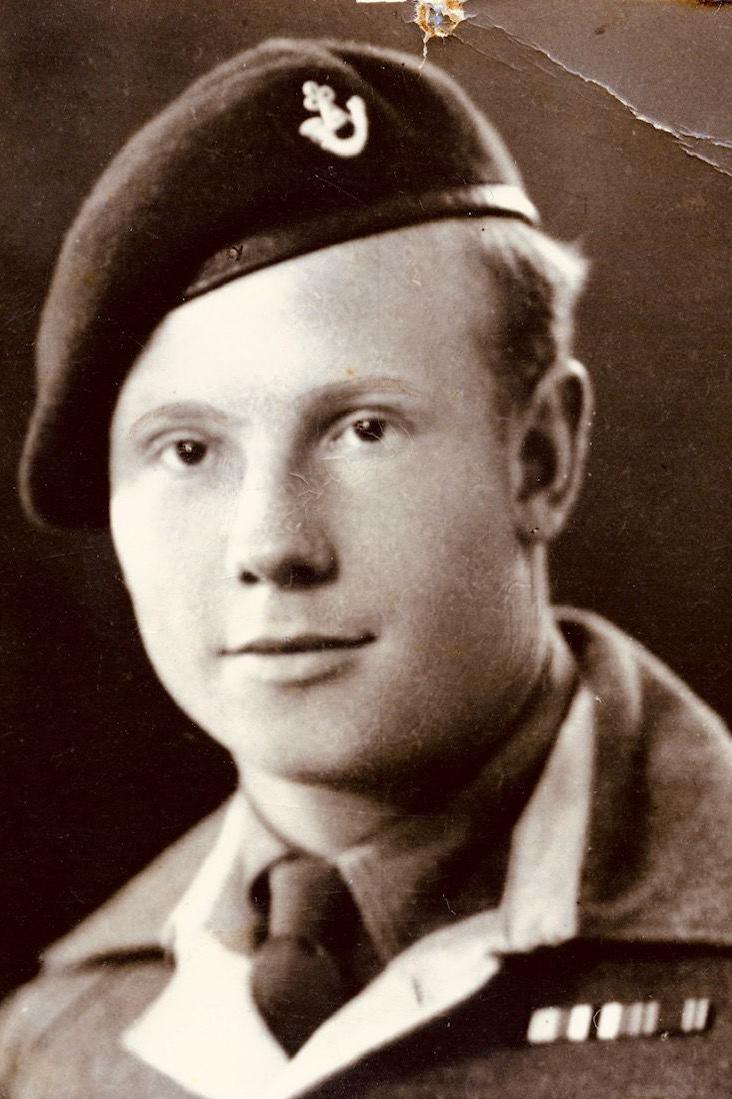
Mr Arthur volunteered in 1941 for the 2nd Oxford and Buckinghamshire Light Infantry
While the story of D-Day might often focus on the Normandy beaches, those who arrived by air played a crucial role.
Mr Arthur volunteered for the 2nd Oxford and Buckinghamshire Light Infantry.
Ahead of D-Day, it became part of the 6th Airborne Division. Paratroopers and glider-borne infantry were dropped into France behind the beaches to capture key targets such as bridges over the Caen Canal and River Orne.
The first wave, led by Major John Howard, secured what became known as Pegasus Bridge.
Mr Arthur says he was part of the second wave, landing near Ranville.
He was trained as a machine gunner and the glider not only took the men, but the gun, ammunition, a Jeep, and a motorbike. On landing, the priority was to check the equipment and then the men.
He says for troops like him there was little knowledge or thought about the scale of Operation Overlord.
“The likes of me didn’t know what was going on. All you knew was bullets coming from that way, mortars coming down from up there,” he says, gesturing.
Mr Arthur fought in battles at Escoville, Hérouvillette and at Château St Côme. As a machine gunner, it was his job to provide covering fire for the troops.
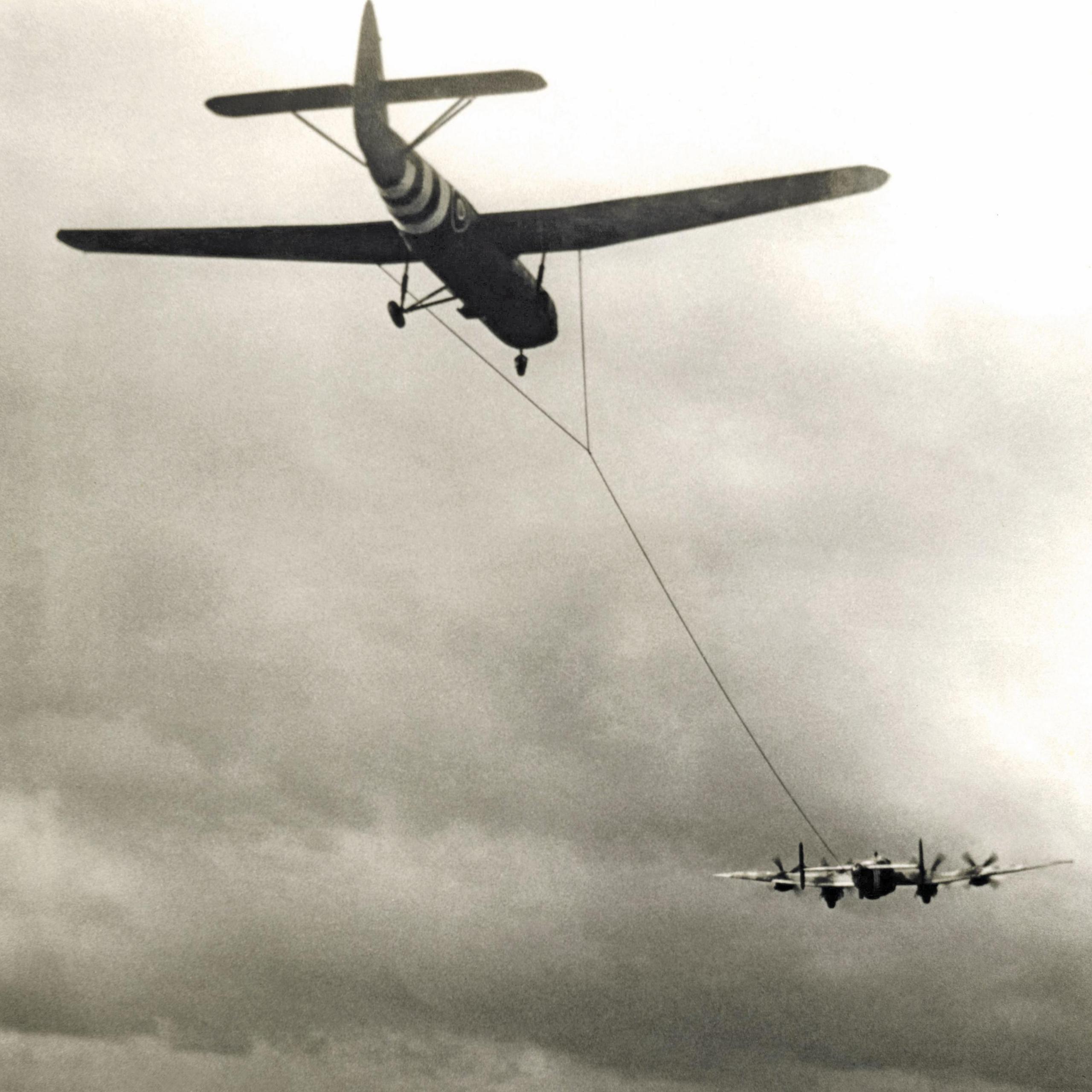
Gliders, used to transport troops and supplies, were towed by bombers over northern France
And while that meant he did not face hand-to-hand combat as others did, the machine gun crew had its own risks.
“Once you opened the Vickers, what did the Germans reply with? Their three-inch mortars,” says Mr Arthur.
There were horrors too. Mr Arthur describes going through a wood with the bodies of paratroopers hanging from the trees and on the ground.
“You wanted to help them, but we were warned by the padre, 'don't go near them'. The Germans had booby trapped them.”
Eighty years on, the loss of friends is still something he feels. He suddenly covers his face with his hands and cries.
“It just brings back memories - of Bob and Buddy,” he says.
They were two friends he lost in the months that followed.
Mr Arthur survived and got married before the Army sent him abroad again.
“I was one of the lucky ones," he says. “We have a motto – Arthurs survive”.
Listen: John Arthur shares his D-Day recollections with BBC Radio Lincolnshire
Follow BBC Lincolnshire on Facebook, X (formerly Twitter), external, and Instagram. Send your story ideas to eastyorkslincs.news@bbc.co.uk, external
Related topics
- Published6 June 2024
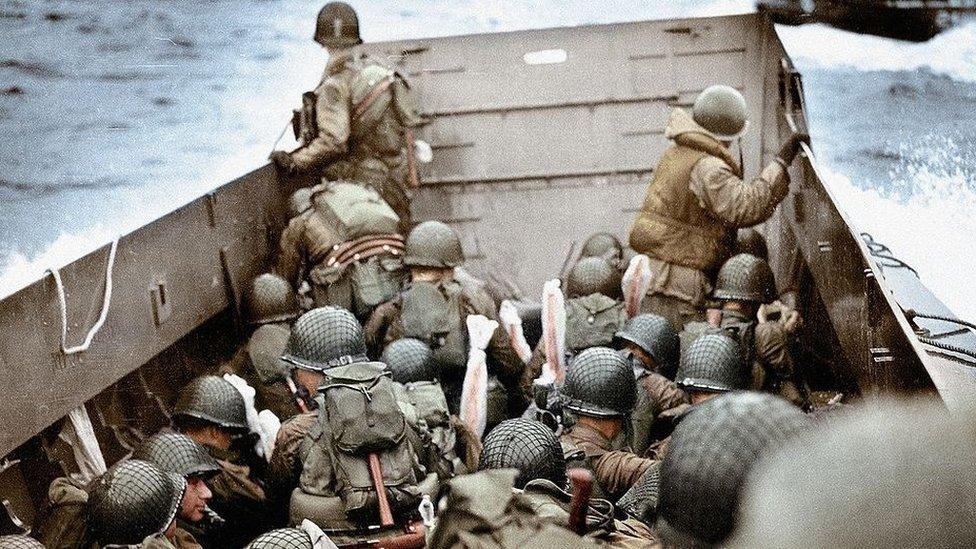
- Published5 June 2024
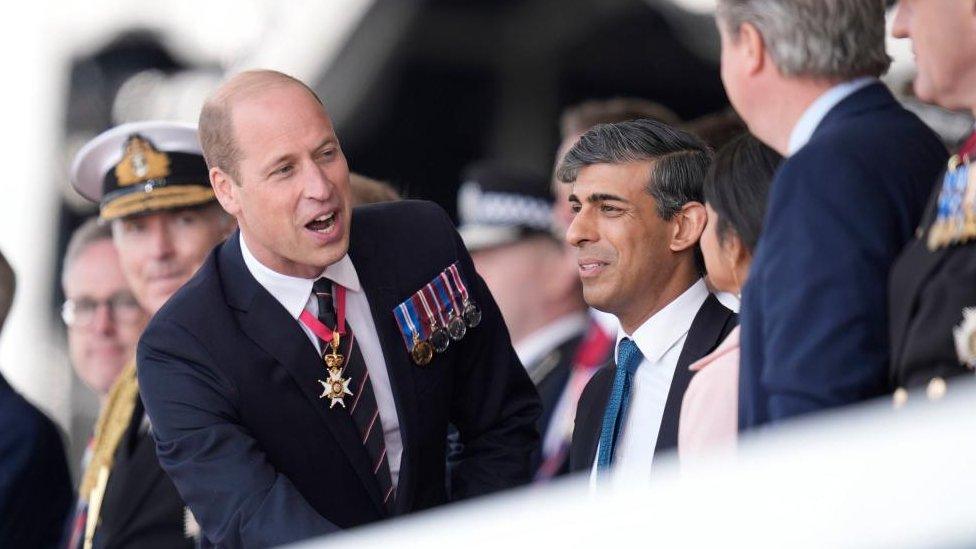
- Published3 June 2024
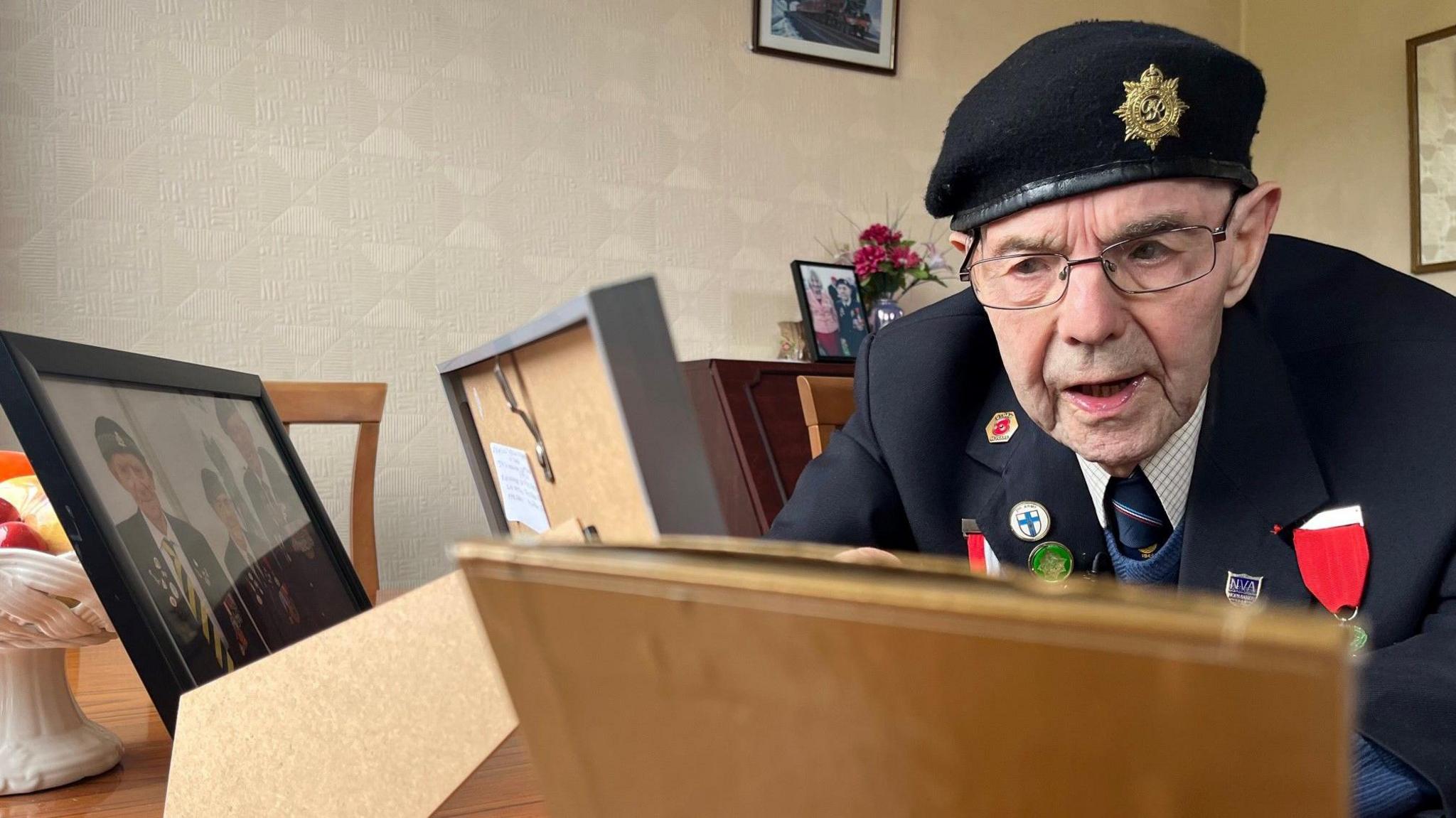
- Published31 May 2024
